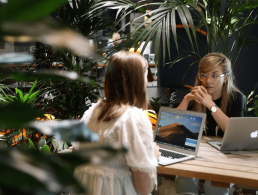Elaine Burke feels fine about the changing structures of work. In fact, some of these shifts are well overdue.
The rationale behind daylight saving time was to align the working schedules of both industrial and agrarian workers – the latter’s daily movements being more influenced by sunlight hours. The practice of shifting clocks in this way was implemented in many countries, including Ireland, from 1916 onwards (with some breaks in between) and to this day we suffer an enforced nationwide jet lag because of an early-20th century notion about workforce management.
Daylight saving time may not be long for this world, and there are plenty of other bedded-down work practices that could do with a shake-up too. We like to talk the talk of modern workforces in the difficult teenage years of the 21st century but the fact is that many 100-year-old attitudes linger on. And why should we continue to adhere to constructs that no longer need apply?
Women are still fighting for equal pay for equal work, seats at high-level decision-making tables, and simply the same opportunities as their male peers. No amount of disruptive workplace technology can e-paper over this old-fashioned problem.
And that’s just one half of society striving for workplace equality – there are other groups still seeking to wedge a foot in the doorway. As unemployment figures drop, one group that often doesn’t see that needle move are people with disabilities. Liam Ryan of SAP Labs Ireland told the Inspirefest audience last year that around 80pc of people on the autism spectrum in Ireland are unemployed.
Dolly Parton’s vision of work does not account for all manner of shift and non-office workers, but the nine-to-five office life is still the default for many roles. Increasingly, though, workers are demanding and receiving a schedule change.
With the right technology and practices, we really can work whenever and wherever – but that doesn’t mean we should work always and everywhere. While remote and flexible working is one modern trend that employers are embracing, it must be managed responsibly in a way that is mindful of the risks of burnout and overwork.
Making different ways of working available to people can help broaden that intake of diverse workers, and this should include policies that acknowledge people at various stages of life. It is 2019 and it is still the exception, not the norm, for workplaces to have policies reflecting that men have a role in parenting too, that families are formed in many different ways, that family caregiving is not solely a need for infants, and, basically, that life happens and sometimes work has to fit around that.
Accounting for a multiplicity of disruptive life events becomes ever more important as we begin to spend more and more of our years at work. Our working lives are lengthening and career breaks need to be an acceptable part of those decades on your CV. For the workers’ part, we must prepare for a lifetime of learning as even a ‘job for life’, should you snag one, will evolve over time.
If we can commit to tackling these fundamentals and more, the future of work can be a welcoming and inclusive one. An overhaul of well-worn work structures is painfully overdue and, for the most part, it’s a change in attitude, not technology, that we need.
Inspirefest is Silicon Republic’s international event celebrating the point where science, technology and the arts collide. Ultra Early Bird tickets for Inspirefest 2020 are available now.
Want stories like this and more direct to your inbox? Sign up for Tech Trends, Silicon Republic’s weekly digest of need-to-know tech news.




